Latest DePIN News

9 months ago
Ceramic Joins Textile Family: A New Era for Decentralized Data Solutions
In a significant development in the decentralized data space, 3Box Labs has announced its merger with Textile, marking a new chapter for Ceramic, which is now part of the Textile family. This merger aligns Ceramic with other innovative decentralized data solutions such as Tableland DB and Basin Network. As the crypto industry evolves, the applications being developed with decentralized and composable data are also changing, particularly with the rise of AI agents that are becoming central to data production and consumption. These agents require decentralized storage, open composability, and real-time streaming capabilities, all of which are core to the Ceramic community's offerings.
Looking ahead, Ceramic aims to establish itself as a foundational element of a broader open intelligence network. This network will facilitate autonomous transactions between AI agents, allowing them to buy and sell intelligence on demand. Agents will be able to enhance their knowledge and capabilities by integrating with others, delegating specialized tasks, or monetizing their expertise—all on-chain. Ceramic's role will be crucial in enabling communication and knowledge sharing between agents, complementing the storage technologies developed by Textile.
Despite these changes, Ceramic will maintain its current operations without disruption to its development or customer services. The merger not only strengthens Ceramic's position in the decentralized data landscape but also connects it to a larger network of agents eager to utilize and pay for datasets. This strategic move is expected to foster innovation and collaboration within the decentralized ecosystem, paving the way for exciting advancements in the future.

9 months ago
Empowering AI Agents Through DIMO's Decentralized Infrastructure
In the evolving landscape of artificial intelligence, AI agents are poised to play a pivotal role in everyday decision-making and transactions. The vision presented in USV's "Four Futures" highlights a future where these agents autonomously interact and transact, managing everything from service payments to physical asset oversight. However, the current challenge lies in the distinction between device connectivity and interoperability. Merely connecting a device to an application does not empower AI agents to function across various services. To harness the full potential of AI, a shared protocol that facilitates seamless communication among devices from different manufacturers is essential, and this is where DIMO's decentralized infrastructure comes into play.
DIMO's framework allows AI agents to access device data securely and verifiably, enabling them to make informed decisions on behalf of users. This capability extends to real-world applications, such as optimizing electric vehicle (EV) charging and automating parking fee management. For instance, an AI agent could analyze real-time electricity pricing and the vehicle's battery health to determine the optimal charging times, ensuring cost savings while prolonging battery life. Similarly, by utilizing location data, the agent can automatically manage parking fees, interfacing with city and private APIs to prevent unnecessary charges without user intervention. These examples illustrate how DIMO's protocol facilitates intelligent interactions within a networked device ecosystem.
The importance of decentralized infrastructure cannot be overstated, as it not only enhances network resilience but also expands the potential for AI agents to operate across a broader range of devices. For AI to transition from software-based decision-making to tangible real-world control, it must rely on secured oracles for trustworthy data, device interoperability for extensive control, and machine identity frameworks for secure transactions. While many AI initiatives expect this infrastructure to develop organically, DIMO and its community are actively constructing it now, fostering an open and decentralized environment where AI agents can thrive and exert real-world influence.
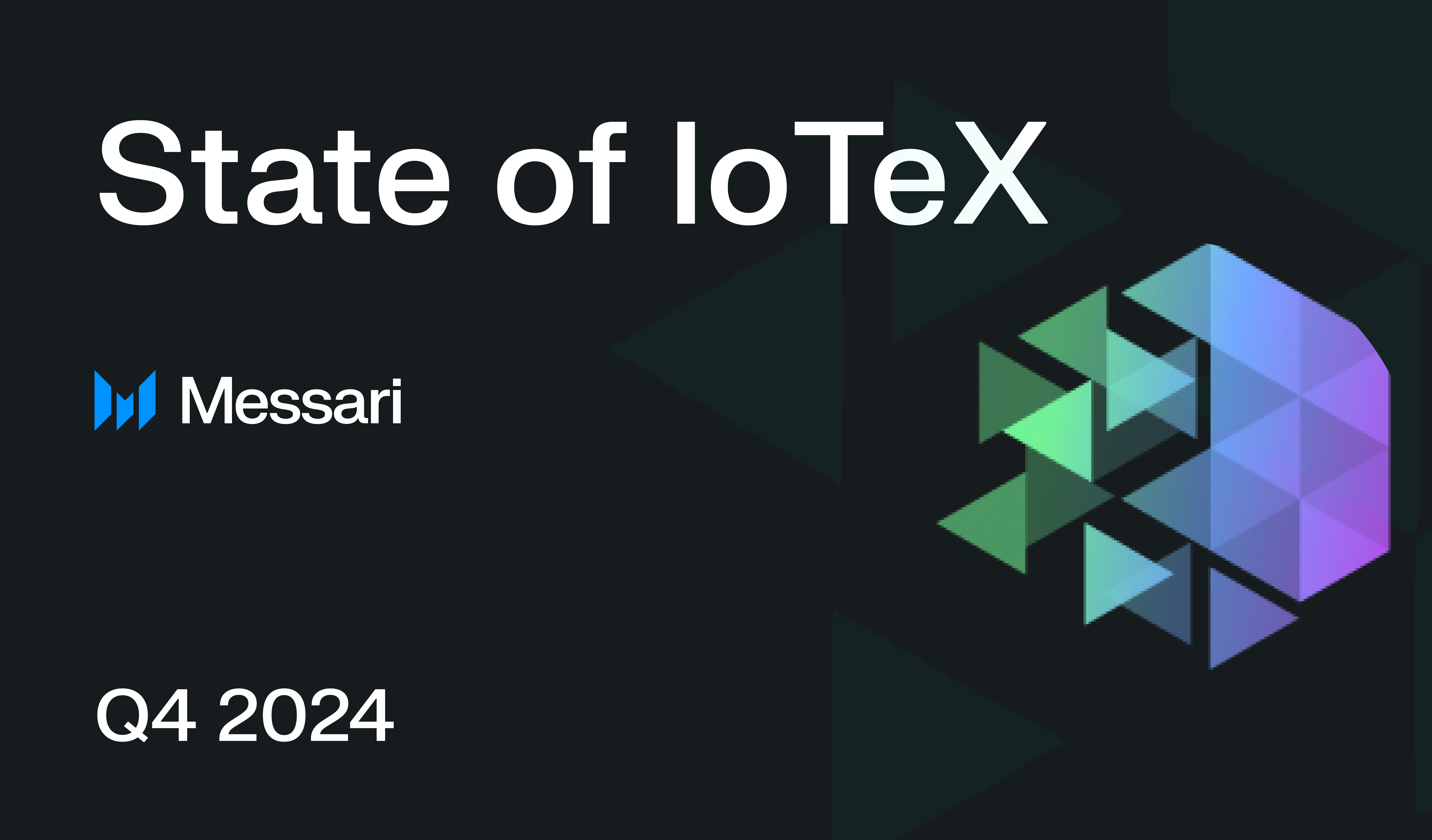
9 months ago
IoTeX 2.0 Launch Drives Record Growth and AI Integration
In the fourth quarter of 2024, IoTeX experienced remarkable growth following the launch of its 2.0 version, with average daily transactions skyrocketing by 1,267% quarter-over-quarter (QoQ) to reach 384,300. This surge was complemented by peak throughput hitting 62 transactions per second (tps). The total fees accrued on the IoTeX Network also saw a significant increase of 205% QoQ, amounting to $448,500, driven largely by a staggering 1,600% rise in gas fees and a 690% increase in decentralized exchange (DEX) fees, primarily from activity on Mimo. The introduction of the ioID protocol, which provides a universal onchain identity solution for smart devices, has played a crucial role in this growth by enabling verifiable device identities and enhancing user engagement in the decentralized physical infrastructure networks (DePIN) ecosystem.
IoTeX has also made strides in integrating artificial intelligence (AI) into its platform with the launch of BinoAI, an autonomous agent built on the ELIZA framework. This development is part of a strategic partnership with Eliza Labs, aimed at creating AI agents that can perceive and interact with physical environments using DePIN data. Additionally, the release of Quicksilver, a middle-layer framework, facilitates the connection between DePIN data and AI agents, allowing for real-time data processing and adaptive responses. These innovations position IoTeX as a leader in the convergence of AI and DePIN, potentially transforming how decentralized applications interact with real-world data.
The IoTeX ecosystem has expanded significantly, now hosting 251 projects, including 66 focused on DePIN. Partnerships with various entities, such as Nubila for environmental data and Streamr for decentralized data streaming, have further enriched the ecosystem. The recent upgrades to IoTeX Core, particularly the Cancun EVM compatibility, enhance the network's functionality and interoperability with Ethereum. As IoTeX continues to innovate and expand its offerings, it is poised to play a pivotal role in the future of decentralized infrastructure and AI-driven applications.
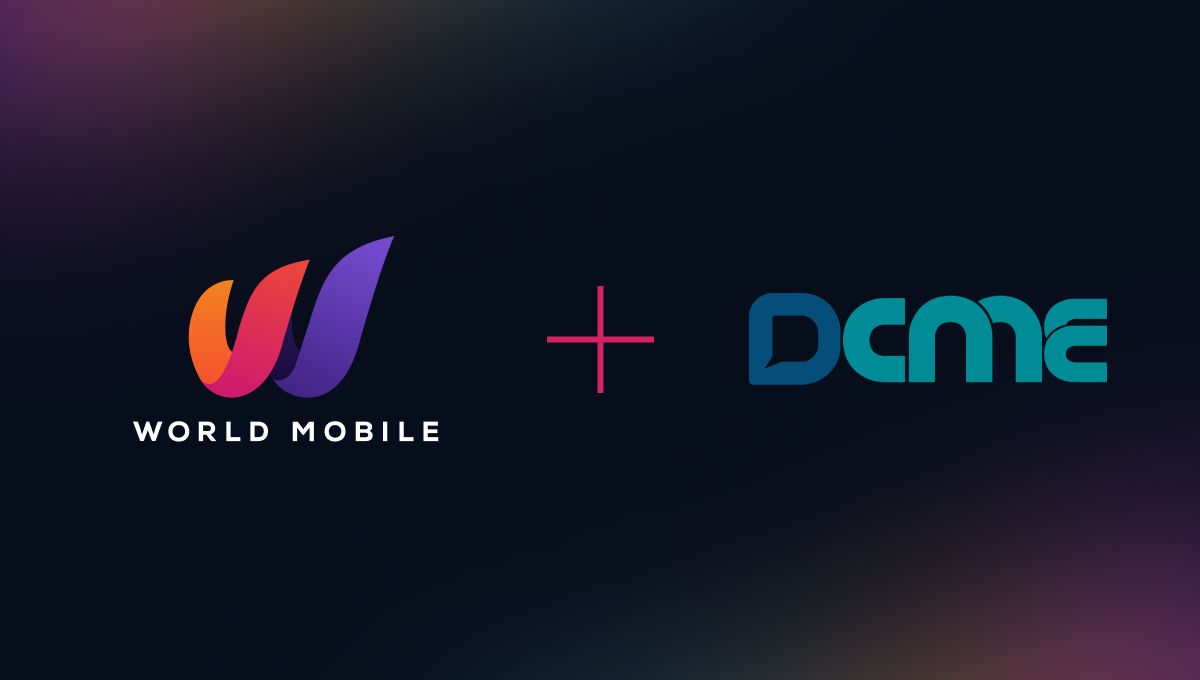
9 months ago
World Mobile Partners with DITO CME to Enhance Connectivity and Financial Inclusion in the Philippines
On February 5th, 2025, World Mobile announced a groundbreaking partnership with DITO CME, the holding company of Dito Telecom, aimed at enhancing mobile and broadband connectivity in the Philippines. This collaboration seeks to address the connectivity gap faced by approximately 25 million Filipinos living in underserved rural areas. By leveraging World Mobile's decentralized physical infrastructure network (DePIN) and blockchain technology, the partnership intends to deliver high-speed, affordable internet access through innovative solutions like World Mobile AirNodes, some of which utilize Starlink's Low Earth Orbit satellite technology.
Central to this initiative is the launch of DTaka, a blockchain-enabled e-wallet platform designed to integrate seamlessly within the DITO CME ecosystem. DTaka will feature a dual-token system that includes a stable-token for remittances and mobile transactions, as well as a utility token for gamification and loyalty rewards. This platform aims to provide a secure and efficient alternative to traditional financial services, fostering financial inclusion and empowering users across the Philippines. Emmanuel Samson, CEO of DTaka, emphasized the platform's potential to revolutionize the e-wallet space by combining World Mobile's blockchain expertise with DITO CME's market reach.
The partnership is a significant step towards promoting Decentralized Physical Infrastructure Networks (DePIN), which encourage shared ownership and operation of essential services. As 2025 unfolds, the initial rollout in the Philippines will pave the way for further expansions, connecting more underserved communities and driving blockchain adoption throughout the region. This collaboration not only highlights the commitment of both companies to innovation and inclusivity but also sets a precedent for future telecommunications advancements in emerging markets.
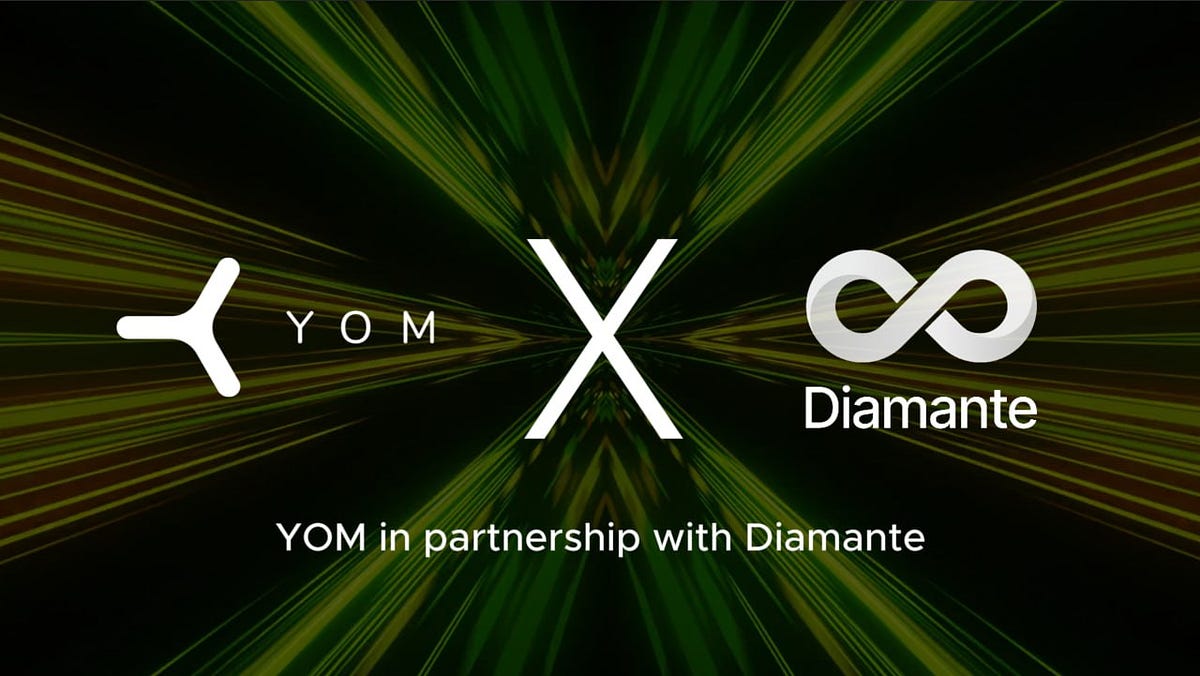
9 months ago
YOM and Diamante Partner to Revolutionize Decentralized Cloud Gaming
In a significant move to enhance decentralized cloud gaming, YOM and Diamante have announced a partnership that aims to leverage the strengths of both companies. YOM is recognized for its advanced decentralized pixel-streaming network, which offers a range of solutions tailored for cloud gaming, including voice chat, multiplayer capabilities, and cross-device controls. On the other hand, Diamante stands out as a next-generation hybrid blockchain designed to integrate both private and public networks, emphasizing quantum-resistant security and scalability. This collaboration promises to provide a robust foundation for decentralized applications and in-game transactions, utilizing advanced consensus mechanisms such as Delegated Proof of Stake (DPoS), Proof of History (PoH), and Asynchronous Byzantine Fault Tolerance (aBFT).
The integration of Diamante’s blockchain infrastructure with YOM’s pixel-streaming network is set to revolutionize gaming experiences. By allowing games built on Diamante to launch on YOM’s platform, players globally will enjoy instant accessibility and low-latency gameplay. A standout feature of this partnership is the incorporation of Diamante’s native wallet functionality, which facilitates seamless in-game transactions for NFTs and digital assets. This integration not only enhances user experience but also ensures that both players and developers benefit from the security measures provided by Diamante’s blockchain. The ongoing joint research and development efforts will further explore how this innovative technology can enhance YOM’s decentralized gaming platform.
The partnership between YOM and Diamante is poised to create a compelling bridge between their respective ecosystems, enabling unprecedented gaming experiences characterized by security, scalability, and accessibility. Joint marketing initiatives will be launched to showcase the combined capabilities of their technologies, fostering engagement and growth within both communities. As the web3 gaming space increasingly incorporates financial transactions, the integration of Diamante’s secure blockchain into the YOM ecosystem will empower developers to create games that prioritize player protection while taking advantage of the expansive decentralized gaming network. This collaboration sets a new standard for the future of gaming and beyond.

9 months ago
IoTeX's Larry Pang Elected Co-Chair of Blockchain Association's DePIN Working Group
IoTeX, a leader in Decentralized Physical Infrastructure Networks (DePIN), has announced that its Head of Ecosystem, Larry Pang, has been elected as co-chair of the DePIN Working Group within the Blockchain Association. This group, co-chaired by Jacob Hample from Filecoin, is part of a new initiative comprising 23 working groups aimed at fostering collaboration and addressing policy priorities in the rapidly evolving U.S. crypto and blockchain landscape. The Blockchain Association serves as a prominent nonprofit organization advocating for a pro-innovation policy environment for the digital asset economy, with over 100 members including key investors and companies in the sector.
Larry Pang's appointment as co-chair underscores IoTeX's commitment to actively participating in the Blockchain Association since its entry last December. His leadership role is expected to enhance the company's influence in shaping regulatory frameworks that will support the growth of DePIN projects in the U.S. market. Pang expressed his honor in being elected and emphasized the importance of fostering industry standards to accelerate the real-world adoption of DePIN technologies, ensuring that the United States remains a leader in this innovative field.
Raullen Chai, Co-Founder and CEO of IoTeX, praised Pang's appointment, highlighting its significance in connecting the physical and digital realms through blockchain technology. As the industry continues to mature, having strong advocates for regulatory frameworks governing decentralized infrastructure is crucial. This development marks a pivotal moment for both IoTeX and the broader blockchain ecosystem, as they work towards advancing policies that will facilitate the success of decentralized physical infrastructure networks in the U.S.
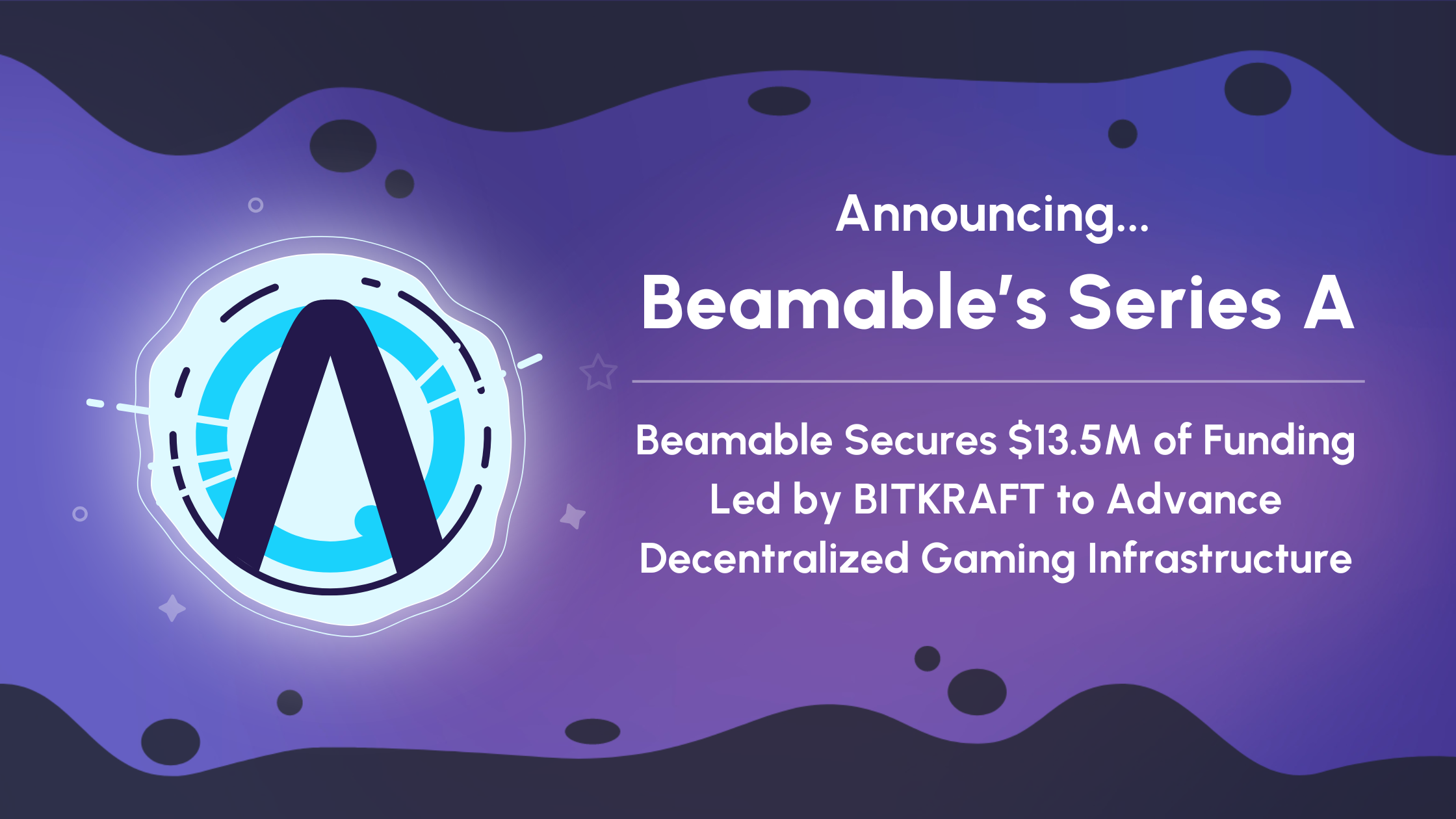
9 months ago
Beamable Secures $13.5 Million to Revolutionize Gaming Infrastructure
Beamable has successfully raised $13.5 million in a Series A funding round led by BITKRAFT Ventures, aimed at advancing the Beamable Network, a Decentralized Physical Infrastructure Network (DePIN) specifically designed for gaming. This significant investment is poised to transform the backend infrastructure for games, moving away from centralized hyperscalers towards a decentralized, community-driven model. The funding will enable Beamable to redefine how developers approach infrastructure, providing them with the tools needed to build more efficient and scalable gaming experiences.
The Beamable Network is anticipated to rank among the top 10 DePIN projects globally upon its launch, fueled by the increasing demand from games that are already utilizing Beamable's innovative technology. By decentralizing essential resources such as computing power, storage, and network bandwidth, the network promises developers enhanced scalability, cost efficiency, and resilience. Furthermore, the establishment of the Beamable Foundation will facilitate open-source development and the creation of a tokenized protocol, offering developers a robust alternative to conventional cloud service providers.
The funding round attracted notable investors including Arca, Advancit Capital, 2Punks, P2 Ventures, Solana Foundation, Scytale Digital, defy.vc, GrandBanks Capital, and Permit Ventures. Carlos Pereira, General Partner at BITKRAFT Ventures, highlighted the potential of Beamable to set a new standard for decentralized infrastructure in gaming. He noted that the combination of proven technology and the disruptive nature of DePIN presents a unique opportunity for game developers in both Web2 and Web3 environments. This funding will empower Beamable to continue delivering cutting-edge infrastructure solutions, paving the way for a new era in decentralized gaming.
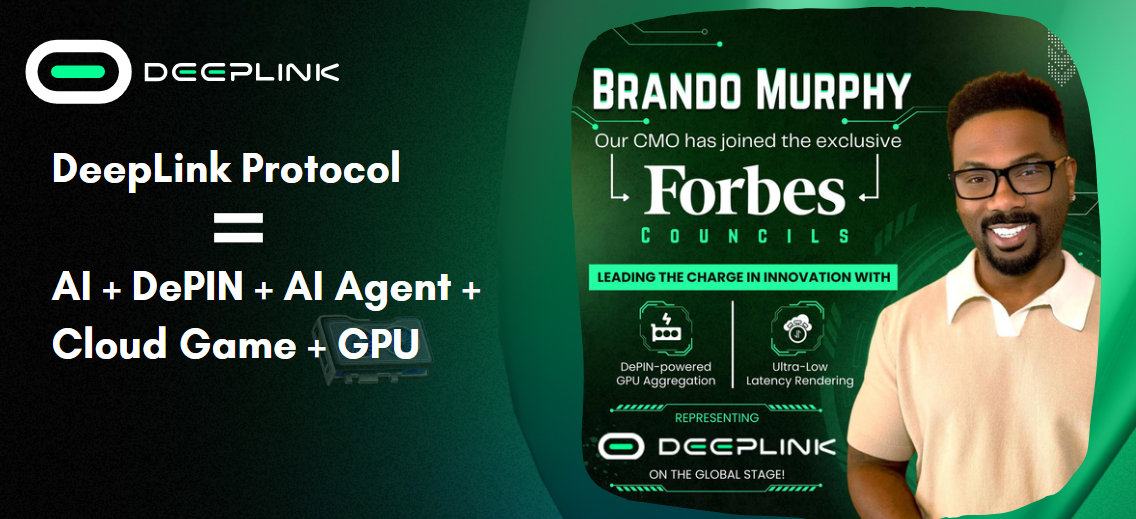
9 months ago
DeepLink CMO, Brando Murphy Joins Forbes Councils. A Major Milestone for DeepLink Protocol
DeepLink Protocol is proud to announce that its Chief Marketing Officer, Brando Murphy, has officially become a member of Forbes Councils, a prestigious invitation-only community that brings together influential leaders, innovators, and visionaries from across the globe. This significant accomplishment not only underscores Brando professional achievements but also amplifies DeepLink presence on a global stage.
Strengthening DeepLink Mission Through Forbes Councils
Forbes Councils is renowned for fostering collaboration among business leaders, providing a platform for exchanging knowledge, and driving meaningful conversations about the future of industries. Brando Murphy entry into this elite circle aligns perfectly with DeepLink Protocol mission to revolutionize cloud gaming through decentralized technology, AI, and blockchain.
With this membership, Brando will have access to an extensive network of like-minded professionals, exclusive events, and thought leadership opportunities. These resources will allow him to represent DeepLink Protocol in discussions that shape the future of technology, gaming, and blockchain industries.
Elevating DeepLink Protocol Global Impact
As a leading voice for DeepLink Protocol, Brando will use this platform to share the company groundbreaking advancements, including its decentralized architecture, AI-powered gaming experiences, and ultra-low latency rendering technology. His active participation in Forbes Councils will ensure that DeepLink Protocol innovative solutions reach a wider audience, inspiring collaboration and adoption across various sectors.
DeepLink is already recognized for leveraging blockchain to create a transparent and secure cloud gaming ecosystem while utilizing DePIN to aggregate idle GPUs and computing resources globally. Brando membership in Forbes Councils enhances the company’s ability to showcase these innovations to a broader community of leaders and decision-makers.
A Step Toward a More Connected Future
This achievement is not just a reflection of Brando Murphy’s outstanding leadership but also a testament to DeepLink Protocol commitment to pushing the boundaries of what’s possible in decentralized gaming. With Brando at the helm of this initiative, DeepLink Protocol is poised to engage with thought leaders and industry pioneers, forging partnerships and driving forward its mission of creating a more accessible, high-performance gaming world.
Brando Murphy inclusion in Forbes Councils is a transformative milestone for both him and DeepLink Protocol. It symbolizes a deeper commitment to innovation, collaboration, and leadership in the decentralized gaming ecosystem. This opportunity will enable DeepLink to continue its journey as a trailblazer in blockchain-based cloud gaming while solidifying its position as a thought leader in the global technology landscape.
Stay tuned as we embark on this exciting new chapter, with Brando Murphy proudly representing DeepLink Protocol on a global platform that champions innovation, excellence, and progress.
Follow our journey and explore how DeepLink Protocol is leading the evolution of cloud gaming and decentralized technology.

9 months ago
DePIN Union Partners with UpRock to Democratize AI Insights
DePIN Union has announced an exciting partnership with UpRock, marking a significant advancement for both platforms. This collaboration aims to create real-time, unbiased insights that are accessible to everyone, thereby redefining how users interact with information in the digital realm. UpRock's mission is to bridge the gap between centralized artificial intelligence (AI) and decentralized infrastructure, establishing a transparent and impartial data ecosystem that benefits all users.
The partnership is set to pave the way for new industrial standards in the realm of data accessibility. DePIN, which operates on a blockchain-powered decentralized infrastructure, made the announcement via its official X account. UpRock is recognized for its innovative approach to AI-focused web crawling and data synthesis, which eliminates biases often found in traditional AI models. By leveraging advanced web crawling techniques, UpRock retrieves meaningful real-time insights while ensuring a streamlined access to data through its decentralized framework.
Together, DePIN Union and UpRock are poised to redefine AI-powered intelligence. By integrating DePIN's decentralized infrastructure with UpRock's AI capabilities, the partnership aims to create a more inclusive and user-controlled digital landscape. This collaboration promises to deliver secure, transparent, and accessible data while mitigating the risks associated with centralized control. As both platforms evolve, they stand as beacons for a future characterized by decentralized, impartial, and user-centric insights, ultimately enhancing the knowledge-based environment for all users.

9 months ago
AO Distribution Protocol Progress and Future Plans
In January, the AO Distribution Protocol opened for community testing, marking significant progress on various Q1 releases, including staking and applications. The development team has shown remarkable improvement month over month, showcasing their ability to work on multiple fronts simultaneously. A dedicated group of testers provided valuable feedback, leading to enhancements in the dashboard's user flow, such as automatic state refreshing after locking and claiming tokens. Additionally, a bug in the operator registry restart process was identified and patched, ensuring smoother operations for users. The team also developed their own Arweave Bundler to facilitate seamless dashboard deployment and enhance censorship-resistant utilities.
The protocol team is advancing the staking system for token holders, with new repositories emerging on GitHub that include features for auto-compounding rewards or directing them to register relays without withdrawal. This initiative aims to strengthen community engagement and reward participation. Furthermore, a closer collaboration with Arweave has been established, signaling a commitment to integrating DePIN technologies. On the hardware front, the team is finalizing the router mode and improving user pathways, with plans for expedited hardware shipments to meet Q1 estimates for buyers who faced delays.
In terms of network and applications, the team has efficiently delivered updates across mobile and desktop platforms. January saw the introduction of a new hidden service footer, the completion of the first Android APK for testing, and significant progress on the Anyone Browser for iOS. The development of an NPM proxy for app anonymization and a comprehensive Python SDK further illustrates the team's commitment to enhancing user experience. With a focus on integrating key partnerships, such as with Carbon Browser, the team is poised for substantial growth in user adoption throughout 2025 and beyond, tackling significant challenges in the digital landscape.
Signup for latest DePIN news and updates